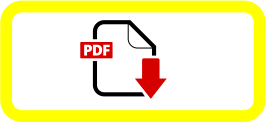Perlindungan Data Pribadi Di Indonesia: Analisis Undang-Undang Dan Fiqh Siyasah Dusturiyah
DOI:
https://doi.org/10.32332/01g65462Keywords:
Regulation, Personal Data Protecion, Siyasah DusturiyaAbstract
Uncontrolled disclosure of personal data has been proven to pose
many risks of various criminal acts. Such as bullying, threats, fraud,
and account hacking are unavoidable. The importance and urgency
of the issue of personal data protection is increasingly being
highlighted by the Indonesian government following the rise in cases
of personal data leakage in Indonesia. Therefore, the Indonesian
government passed Law Number 27 of 2022 concerning Personal
Data Protection. This type of research is library research. This
research is descriptive analysis using qualitative methods. The data
source in this research is a secondary data source obtained through
documentation. through article 65 of the Personal Data Protection
Law, it provides new hope for the security of people's personal data
in Indonesia and as a trigger for the habits of Indonesian people to be
more careful in giving or using their own or other people's data, and
prohibits everyone from using personal data. other people with the
aim of misusing the data, either to benefit themselves or for other
interests. Article 65 of the Personal Data Protection Law is in line
with fiqh siyasah dusturiyah. Based on Surah an-Nur verse 27, Ibn
Asyur stated that the house is the most private place, not just a place
to shelter from the heat, take shelter when it rains, warm oneself in
cold weather. Discusses state laws and regulations in terms of which
regulations are for the benefit of citizens in order to achieve the
principle of fulfilling citizens' rights. Because providing protection
for personal data is one manifestation of fulfilling the rights of every
citizen.
Downloads
References
Downloads
Published
Issue
Section
License
Copyright (c) 2025 Denny Yusmahendra, Dani Amran Hakim

This work is licensed under a Creative Commons Attribution-ShareAlike 4.0 International License.
This work is licensed under a Creative Commons Attribution-ShareAlike 4.0 International License.













